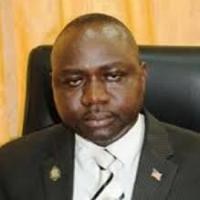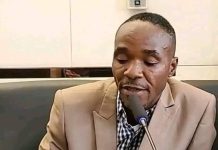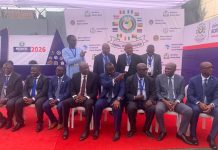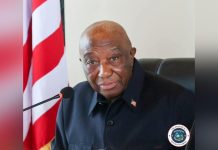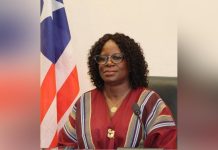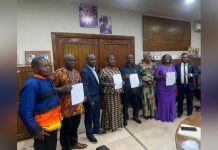Africa-Press – Liberia. Cllr. Boakai Kanneh, the head of the Law Reform Commission, has advocated for the rewriting of the 1986 Constitution, emphasizing the need for constitutional reform to promote reconciliation, political dialogue, and peace consolidation in Liberia.
His proposal, discussed in a recent radio program, entails creating Article 92(b) to facilitate the rewriting of the constitution, a process that would require a referendum if there is political will to proceed.
“The writing of a new constitution will provide a unique opportunity to advance reconciliation, political dialogue, and peace consolidation,” Kanneh said in a Wednesday morning’s radio simulcast on Prime FM and OK FM, on a program of the Liberian Election Observer Network (LEON). “Article 92 (b) will only be rewriting of the constitution because in the constitution there is no framework for constitutional amendments which reference the rewriting of the constitution.”
If there is a political will, he noted, the process could be done through referendum .
The head of the Law Reform Commission is also an Assistant Professor of Law at the Louis Arthur Grimes School of Law at the University of Liberia.
The call for constitutional reform stems from concerns about the continuous violation of Article 80 of the constitution, which addresses setting a population-based threshold, among other issues.
Setting a threshold for districts’ seats, he believes, should be based on population growth and movements, and this should be done through a national census instead of the use of a Legislative Joint Resolution.
The push for constitutional revision has gained momentum since 2013, with support from various partners, including the UNDP, USAID, EU, and other international donors, following the country’s civil war.
The process of constitutional reform, led by the Constitutional Review Committee (CRC) and supported by the Governance Commission and the Law Reform Commission, has been ongoing, focusing on citizen engagement, knowledge building, and sensitization to ensure an inclusive and participatory approach to reforming the constitution.
The process started with the Constitutional Review Committee (CRC) organizing and leading discussions and debates on the 1986 Liberian Constitution geared toward deriving proposals for amendment, which were submitted to the National Legislature and would subsequently be presented to the voting population in a referendum for approval.
Accordingly, for over three years, the CRC spearheaded the Constitutional Review Process and was assisted by the Governance Commission (GC) and the Law Reform Commission (LRC).
During the process, partners agreed on the need to maintain the momentum by deepening engagements, building knowledge, and sensitizing citizens on the importance of an inclusive and participatory constitutional reform process, recognizing that the constitutional reform process provides a unique opportunity to advance reconciliation, political dialogue, and peace consolidation efforts in Liberia.
This continued up to 2019, with more regional consultations. With the enormous investment made in the Election Law Reform, the process is beginning to yield fruits, as the National Legislature approves some of the proposed amendments.
Proposed amendments include changes to election timings, terms of office for elected officials, and citizenship laws, among others. Some of the wildly supported proposed constitutional provisions are: elections to be conducted on the Second Tuesday in November instead of the Second Tuesday in October; reduction in the time allotted for the hearing of complaints coming from General Elections from thirty (30) days to fifteen (15); reduction in the tenure of the President from six (6) years to five (5) years; reduction in the term for Senators from nine (9) years to seven (7) years; reduction in the term of Representatives from six (6) to five (5)years and at least one of whose parents was a citizen at the time of the person’s birth shall be a natural-born citizen of Liberia. Such person does not have to reach the age of maturity to decide his/her citizenship. Also, a natural-born citizen of Liberia may hold another citizenship, but shall not qualify for elected national or public service positions and appointed positions; among others.
These amendments aim to streamline electoral processes, reduce terms of political officeholders, and clarify citizenship requirements. The objective of this process is to strengthen governance, promote democratic principles, and foster peacebuilding efforts in Liberia.
For More News And Analysis About Liberia Follow Africa-Press

